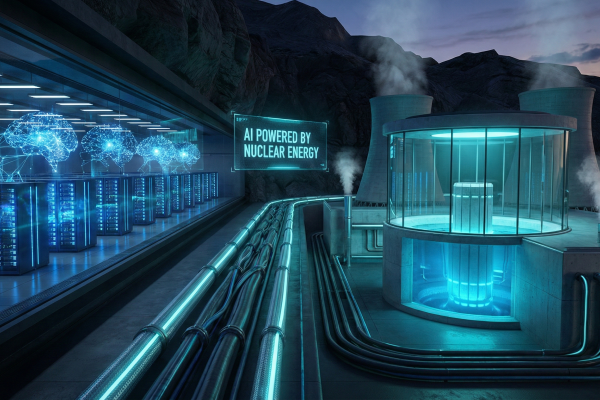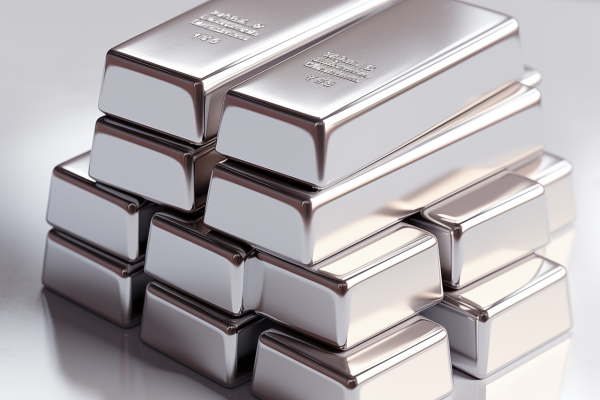May 27th, 2025 | 07:20 CEST
Tariff chaos as a springboard: How Volkswagen, European Lithium, and BYD are securing future profits
The global automotive industry is in a quandary: New US punitive tariffs of up to 50% on imported vehicles threaten to sideline European manufacturers. Even though Donald Trump is giving Europe more time for negotiations, the tariffs are still on the table. These tariffs would result in a slump in exports and shrinking margins. But there is also an opportunity amid the chaos. Those who strengthen local supply chains, drive forward electric innovations, and cooperate strategically will dominate tomorrow's market. Therefore, we look at two major automakers, Volkswagen and BYD, and analyze European Lithium, which will become very important for European supply chains.
time to read: 5 minutes
|
Author:
Armin Schulz
ISIN:
VOLKSWAGEN AG VZO O.N. | DE0007664039 , EUROPEAN LITHIUM LTD | AU000000EUR7 , BYD CO. LTD H YC 1 | CNE100000296
Table of contents:

"[...] In 2020, the die is finally cast in the automotive industry towards electromobility. [...]" Dirk Harbecke, Executive Chairman, Rock Tech Lithium Inc.
Author
Armin Schulz
Born in Mönchengladbach, he studied business administration in the Netherlands. In the course of his studies he came into contact with the stock exchange for the first time. He has more than 25 years of experience in stock market business.
Tag cloud
Shares cloud
Volkswagen – Caught between global trade conflicts and the electric transformation
The ongoing trade conflicts between the EU and the US are weighing heavily on Volkswagen. Threatening import tariffs of up to 50% on European vehicles could weaken the Company's competitiveness in the US. Although VW has a local production base with plants such as Chattanooga in Tennessee, weak demand for electric models such as the ID.4 has already led to shift cuts. At the same time, the Company's global presence highlights its resilience – an advantage over competitors with a stronger regional focus.
The EU's plans to phase out combustion engines from 2035 are putting Volkswagen under pressure to accelerate the shift to e-mobility. Despite rising BEV sales, with electric vehicles already accounting for 20% of the market in Western Europe, high production costs and low margins are weighing on profitability. The Company is responding with efficiency programs, including job cuts and the development of more affordable electric models from 2026. Analysts see the long-term potential here but warn of short-term volatility due to transformation costs and declining subsidies.
In China, once a growth engine, Volkswagen is struggling with declining margins and local competition. A 7% drop in sales in the first quarter highlights the crisis. The "in-China-for-China" strategy aims at locally adapted models and cost reductions, but has so far had only limited effect. At the same time, price pressure is increasing from Chinese manufacturers, who dominate the market for inexpensive electric vehicles. Nevertheless, the Company remains optimistic. Partnerships like the one with Rivian are intended to close software gaps, while cheaper battery technologies could improve returns on e-mobility. The share is currently available for EUR 94.84.
European Lithium – Europe's raw materials shift: Focus on lithium and rare earths
The Austrian Wolfsberg project of European Lithium's subsidiary is nearing the start of production. From 2026, the project could supply up to 22,500 tons of lithium hydroxide per year - the key raw material for electric vehicle batteries. A long-term supply agreement with BMW is already in place. With the planned refinery in partnership with Saudi Arabia, the Company is focusing on efficient value chains and benefiting from low-cost local energy, which will reduce costs by 80%. Wolfsberg supports Europe's efforts to reduce lithium imports, which could cover around 4.5% of global production. At the same time, however, the Tanbreez project in Greenland is coming to the fore, a flagship project for rare earths that aims to make Western markets less dependent on China.
In May, new drilling data from the Tanbreez project confirmed high grades of rare earth oxides with values of 0.39–0.48% TREO, with up to 27% heavy rare earth oxides (HREO). These metals are essential for wind turbines, electric motors, and defense technologies. Economic studies predict a net present value (NPV) of USD 2.4–3 billion and an internal rate of return of 162% before taxes. Against the backdrop of escalating trade conflicts between the US and China, Tanbreez is gaining relevance. The US is pushing for diversification of critical supply chains, as China currently controls over 90% of HREO production.
The EU's targets of producing at least 10% of strategic raw materials locally by 2030 highlight the importance of projects such as Wolfsberg and Tanbreez. Greenland's resources, which are part of the EU under Danish sovereignty, could reduce dependence on China. European Lithium plans further drilling in Tanbreez in 2025 to expand its resource base. The Company is thus positioning itself as a bridge builder between European industrial partners and global sales markets. For investors, the expansion of resilient supply chains remains a long-term growth theme. With a share price of AUD 0.052, the Company has a market capitalization of AUD 75 million. Its stake in Critical Metals, which is listed on the NASDAQ, is worth more than that alone.
BYD – European offensive
The current US punitive tariffs on Chinese electric vehicles, including a total tariff rate of 247.5%, have effectively closed the US market to BYD. Instead of focusing on a costly market entry, the Company is shifting its expansion to Europe, Latin America, and Mexico. To reduce supply chain costs, BYD has been pushing down prices at suppliers by around 10% since 2025. A planned production facility in Mexico, originally intended as a bridge to North America, is now also being critically reviewed. This flexibility underscores BYD's ability to adapt to geopolitical risks.
BYD achieved a symbolic victory in Europe in April 2025. With 7,231 new registrations of purely electric vehicles, the Company overtook Tesla for the first time. Local production, for example, in Komárom, Hungary, is crucial in avoiding punitive tariffs and shortening delivery times. At the same time, BYD is meeting demand for price-conscious models. The Atto 2 city SUV starts at under EUR 30,000, and the Dolphin Surf compact car even starts at EUR 19,990. The portfolio is complemented by plug-in hybrids designed to reduce skepticism toward pure electric vehicles. This combination of aggressive pricing and regional presence makes BYD a serious competitor.
In-house technological developments such as the space-saving "Blade Battery" and a 1,500-volt charging system that enables a range of 400 km in 5 minutes strengthen BYD's competitive advantage. The Company also benefits from vertical integration, from battery production to software development, which secures margins of over 20% despite price wars. With plans to double exports to 800,000 vehicles and factory projects in Brazil, BYD is pushing ahead with global expansion. For investors, the balancing act between growth opportunities and regulatory risks remains crucial, but the Company's strategic agility speaks for itself so far. The share is currently trading at EUR 48.77.
The current trade conflicts are forcing Volkswagen, European Lithium, and BYD to make strategic adjustments that will also strengthen their future viability. Volkswagen is focusing on local production, efficiency programs, and partnerships such as with Rivian to drive forward the electric transformation despite margin pressure. European Lithium is becoming a key player in Europe's raw material autonomy with its lithium and rare earth projects in Wolfsberg and Greenland. BYD dominates with aggressive pricing, local manufacturing in Europe, and technological innovations. Together, the companies are securing their profits through regionalization of supply chains, cost reduction, technological leadership, and the expansion of critical raw material sources - decisive levers in the trade war.
Conflict of interest
Pursuant to §85 of the German Securities Trading Act (WpHG), we point out that Apaton Finance GmbH as well as partners, authors or employees of Apaton Finance GmbH (hereinafter referred to as "Relevant Persons") may hold shares or other financial instruments of the aforementioned companies in the future or may bet on rising or falling prices and thus a conflict of interest may arise in the future. The Relevant Persons reserve the right to buy or sell shares or other financial instruments of the Company at any time (hereinafter each a "Transaction"). Transactions may, under certain circumstances, influence the respective price of the shares or other financial instruments of the Company.
In addition, Apaton Finance GmbH is active in the context of the preparation and publication of the reporting in paid contractual relationships.
For this reason, there is a concrete conflict of interest.
The above information on existing conflicts of interest applies to all types and forms of publication used by Apaton Finance GmbH for publications on companies.
Risk notice
Apaton Finance GmbH offers editors, agencies and companies the opportunity to publish commentaries, interviews, summaries, news and the like on news.financial. These contents are exclusively for the information of the readers and do not represent any call to action or recommendations, neither explicitly nor implicitly they are to be understood as an assurance of possible price developments. The contents do not replace individual expert investment advice and do not constitute an offer to sell the discussed share(s) or other financial instruments, nor an invitation to buy or sell such.
The content is expressly not a financial analysis, but a journalistic or advertising text. Readers or users who make investment decisions or carry out transactions on the basis of the information provided here do so entirely at their own risk. No contractual relationship is established between Apaton Finance GmbH and its readers or the users of its offers, as our information only refers to the company and not to the investment decision of the reader or user.
The acquisition of financial instruments involves high risks, which can lead to the total loss of the invested capital. The information published by Apaton Finance GmbH and its authors is based on careful research. Nevertheless, no liability is assumed for financial losses or a content-related guarantee for the topicality, correctness, appropriateness and completeness of the content provided here. Please also note our Terms of use.




